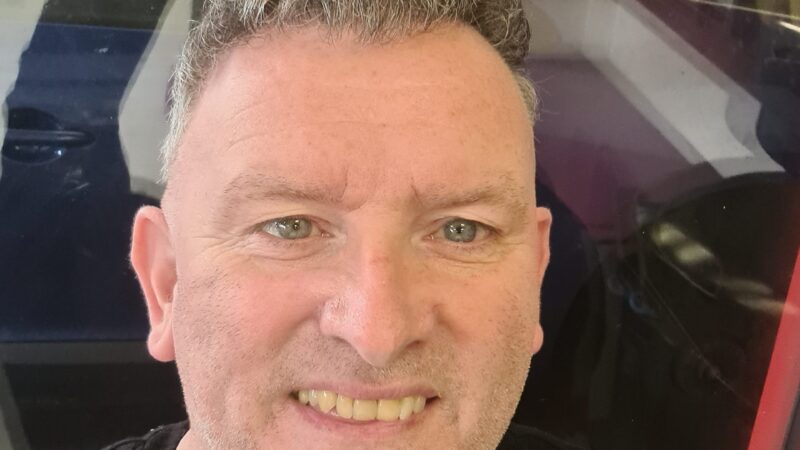
A special study trialling whether a COVID-19 patient’s plasma could be used as a treatment for others may have been found to be ineffective for in-hospital patients – but one Hartlepool man is convinced it could still have an impact.

Provisional results from the national RECOVERY study into different potential treatments for coronavirus found convalescent plasma did not help hospital patients.
But the NHS blood and transfusion service will now look into whether plasma donation could be used as a pre-hospital treatment in patients with the illness.
Scott’s story
Scott Pearson from Hartlepool was so ill with the virus that he had to be admitted to the University Hospital of North Tees after several days self-isolating at home.
Three days into his hospital stay, he was offered the chance to be a part of the study. He was spoken to in detail by the research nurses at North Tees and Hartlepool NHS Foundation Trust.
Speaking about his stay in hospital in October, Scott said: “For the first two days in hospital I was really poorly. I felt like I’d run a marathon – I didn’t even have the strength to speak. When I was asked if I wanted to be part of the research trial I said yes.
“I had the plasma treatment on the third day. Within 48 hours I felt about a thousand times better.
“I am absolutely convinced it was largely because of the plasma treatment. The difference was unbelievable.
“I was in hospital for three days after and then I was out and back home.”
Scott, who is 50 and has type two diabetes, had been ill for 11 days before coming to hospital. He had been isolating at home with his wife Deborah, 46, and daughter Erin-August, 23.
He explains: “On day 12 in the house I was struggling to breathe, to the point where I was starting to turn blue.
“I am so grateful for the care I had at the trust and so thankful I got involved in the research trial. I believe it made the difference in helping me recover.”
Investigating
Alex Ramshaw, who is the lead research nurse for the recovery trial at the Trust, said: “Provisional results from the study show that this was not an effective treatment for hospital patients.
“But we are still investigating whether it could have an impact on people with COVID-19 before they become very unwell and need hospital care.
“Scott is convinced this treatment had an impact. The indication is that men within his age range make the most suitable plasma donors with the best antibody yields.
“Thanks to volunteers like Scott, we are able to test these different treatments and find out what works best.”
For more information and to find out how to get involved, visit nhsbt.nhs.uk/how-you-can-help/convalescent-plasma-clinical-trial/